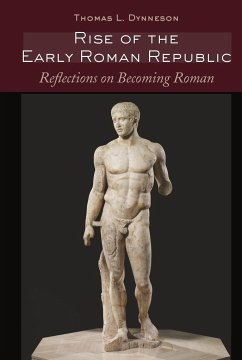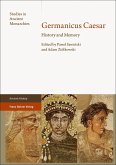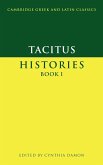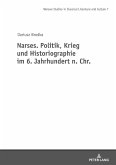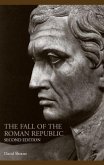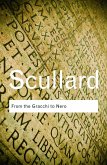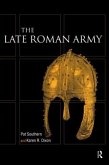An audaciously daring narrative, this text presents an overview of the early history of Rome, focusing the reader's attention to those distinctive and often hidden cultural features that contributed to create a unique ancient Roman mindset and civic outlook. Using an historical format, Thomas L. Dynneson addresses these cultural forces which ultimately shaped the Romans into the ancient world's most powerful military city-state.
Comprised of numerous values and beliefs, the Romans sought to develop their citizens as a cohesive whole. This approach enabled a mastering of both the practical and utilitarian tactics for solving problems, an expression of classical intellectualism. Identifying this sense of idealism paralleled with the Romans embodiment of sacrifice to overcome all obstacles, the author explores several features of becoming Roman. Within this text, each section is designed to pull together the general historical elements which helped to create a unique Roman citizenship. The final section of each chapter contains further analysis, including the author's narrative regarding the general sources used, and the second containing a review of one exceptional recommended reading. The later chapters of the book provide a special "Recent Scholarship" section, which explores the work of recent scholars' "revisionists" perspectives related to the traditional ancient sources.
Comprised of numerous values and beliefs, the Romans sought to develop their citizens as a cohesive whole. This approach enabled a mastering of both the practical and utilitarian tactics for solving problems, an expression of classical intellectualism. Identifying this sense of idealism paralleled with the Romans embodiment of sacrifice to overcome all obstacles, the author explores several features of becoming Roman. Within this text, each section is designed to pull together the general historical elements which helped to create a unique Roman citizenship. The final section of each chapter contains further analysis, including the author's narrative regarding the general sources used, and the second containing a review of one exceptional recommended reading. The later chapters of the book provide a special "Recent Scholarship" section, which explores the work of recent scholars' "revisionists" perspectives related to the traditional ancient sources.
"Thomas L. Dynneson has done it again! Continuing his insightful series of books on the concept of civism-the intersection of education, custom, and law that defines the ideal citizen-Dynneson explores the rise of the Roman Republic to gain an understanding of how the socialization of citizenship, urbanization, and assimilation contributed to a distinctive Roman brand of civism. He provides a compelling narrative that explains how, in his words, Roman citizenship 'would become a unique compounding power that was destined to allow one city to rule the entire Mediterranean world.' It is a terrific contribution to our historical understanding of Rome and the formation of Roman character." -Edward Schiappa, John E. Burchard Chair of Humanities, M.I.T.

